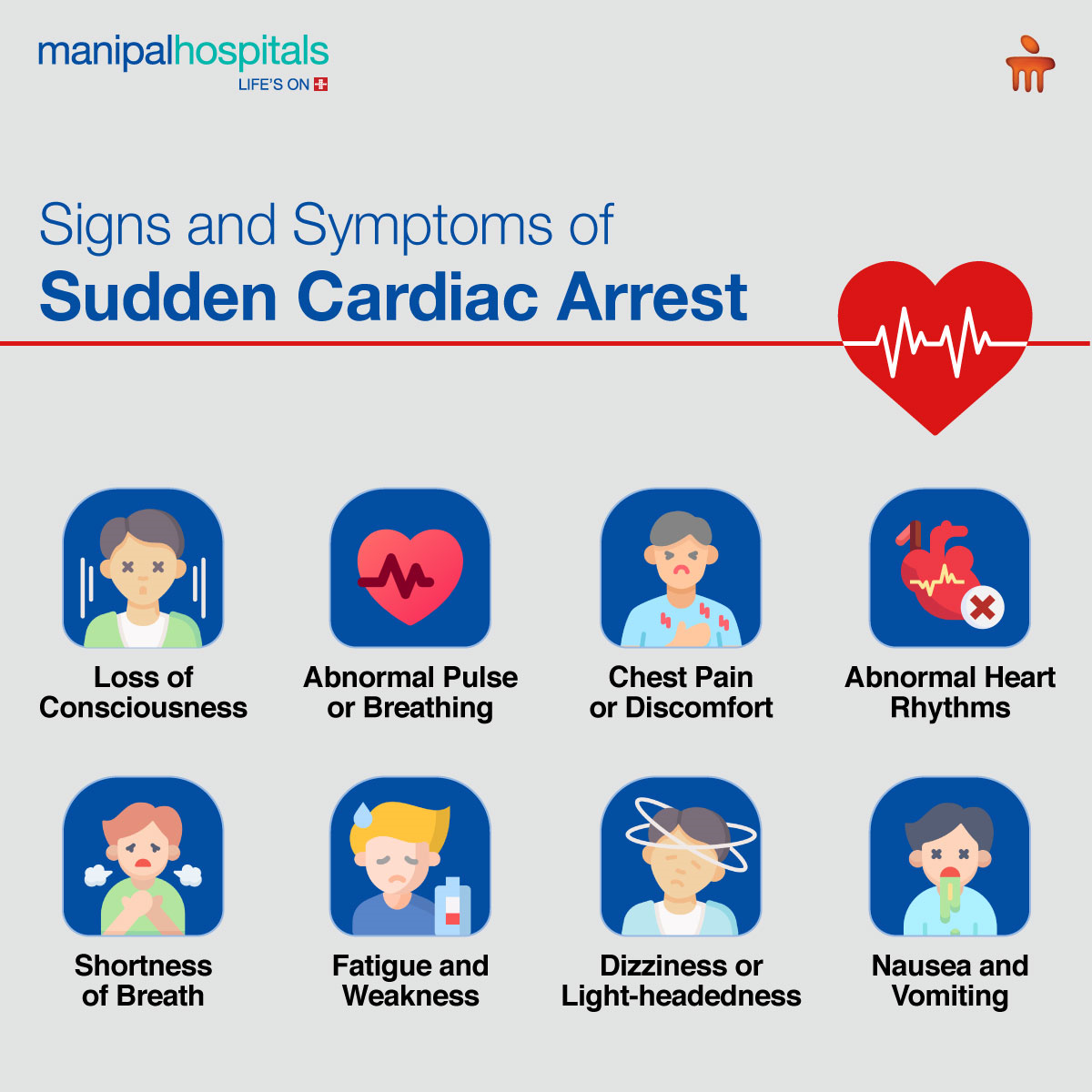
In the intricate symphony of life, our heart plays the lead role. However, amidst the pulsating rhythm, there exists a silent assailant known as Sudden Cardiac Arrest (SCA). Unlike the heart attack, SCA strikes swiftly and often without warning, leaving an indelible mark on those affected. Let's explore this clandestine threat and understand its cardiac arrest symptoms, causes, and available treatment options.
Synopsis
An Overview of Sudden Cardiac Arrest
Sudden Cardiac Arrest is an abrupt, life-threatening event that occurs when the heart unexpectedly stops beating. Contrary to popular belief, it is not synonymous with a heart attack. While both involve the heart, the crucial distinction lies in their mechanisms. SCA is an electrical malfunction, causing an erratic heartbeat, or arrhythmia, disrupting the heart's ability to pump blood effectively.
How is it Different from a Heart Attack?
A heart attack is primarily a circulation issue, transpiring when blood flow to a part of the heart muscle is blocked, often by a blood clot. On the other hand, Sudden Cardiac Arrest is an electrical glitch, leading to the heart's chaotic rhythms and subsequent cessation of pumping.
Causes of Sudden Cardiac Arrest
-
Coronary Artery Disease (CAD): The most common cardiac arrest causes, CAD to narrow the arteries, limiting blood flow to the heart.
-
Arrhythmias: Irregular heart rhythms, such as ventricular fibrillation (VF) or ventricular tachycardia (VT), can trigger SCA.
-
Cardiomyopathy: Conditions affecting the heart muscles may increase the risk.
-
Electrical Abnormalities: Inherited or acquired issues in the heart's electrical system can be precursors.
-
Drug Abuse: Certain substances may induce arrhythmias, escalating the likelihood of SCA.
Signs and Symptoms of Sudden Cardiac Arrest
Sudden Cardiac Arrest (SCA) is a critical medical emergency that demands swift intervention. While it often strikes unexpectedly, there are discernible signs and symptoms that, if recognised promptly, could potentially save a life.

-
Loss of Consciousness
Sudden and unexplained loss of consciousness is a hallmark symptom of SCA. The individual may collapse without any apparent reason, often catching bystanders off guard.
-
No Normal Pulse or Breathing
Check for signs of life by assessing the pulse and breathing. In the case of SCA, there will be an absence of both. It is crucial to act swiftly, as the lack of pulse indicates the heart's failure to pump blood effectively.
-
Chest Pain or Discomfort
While not always present, some individuals may experience chest pain or discomfort before the onset of SCA. This can be mistaken for a heart attack, emphasizing the importance of recognising the subtle differences between the two.
-
Abnormal Heart Rhythms
SCA is often triggered by irregular heart rhythms, known as arrhythmias. Ventricular fibrillation (VF) and ventricular tachycardia (VT) are common arrhythmias associated with SCA. If someone experiences palpitations or a rapid, irregular heartbeat, it could be a precursor to SCA.
-
Shortness of Breath
A sudden, severe shortness of breath may precede or accompany SCA. The heart's inability to pump blood effectively results in inadequate oxygen supply to the body, leading to respiratory distress.
-
Fatigue and Weakness
Individuals at risk of SCA may experience extreme fatigue and weakness, even during routine activities. This could be a manifestation of the compromised blood flow and oxygen delivery to the body's tissues.
-
Dizziness or Light-headedness
SCA may cause a sudden and profound drop in blood pressure, leading to dizziness or light-headedness. This can be a warning sign that the cardiovascular system is under duress.
-
Nausea and Vomiting
Some individuals may experience nausea or vomiting before or during SCA. This can be attributed to the overall stress on the body as a result of inadequate blood circulation.
Who is at Higher Risk?
Certain factors elevate the risk of Sudden Cardiac Arrest; they are:
-
Previous Heart Attack: Individuals with a history of heart attacks are at an increased risk.
-
Family History: A genetic predisposition may amplify vulnerability.
-
Age: The risk rises with age, particularly after 45 for men and 55 for women.
-
Gender: Men are generally at a higher risk than women.
-
Drug and Alcohol Abuse: Substance abuse can contribute to cardiac issues.
Diagnosis and Treatments
-
Electrocardiogram (ECG or EKG): Records the heart's electrical activity.
-
Holter Monitor: A portable ECG that monitors the heart over 24 to 48 hours.
-
Echocardiogram: Uses sound waves to create an image of the heart.
-
Implantable Cardioverter-Defibrillator (ICD): A device implanted under the skin to monitor and correct abnormal heart rhythms.
-
Cardiopulmonary Resuscitation (CPR): Immediate CPR can buy crucial time until professional help arrives.
-
Advanced Life Support (ALS): Emergency medical interventions include defibrillation and medications.
Sudden Cardiac Arrest is a formidable adversary, but knowledge is our shield. Recognising the symptoms, understanding the causes, and identifying those at risk empower us to navigate this precarious landscape. By fostering a culture of awareness and adopting preventative measures, we can strive to diminish the stealthy impact of Sudden Cardiac Arrest and ensure that hearts continue to beat harmoniously in the symphony of life.
To find out more about Sudden Cardiac Arrest, you can contact the Cardiology department of Manipal Hospitals, Kolkata.
FAQ's
Sudden cardiac arrest (SCA) is a life-threatening condition. In this state, the heart abruptly stops beating effectively. This disrupts blood flow to the organs, including the brain.
SCA can strike anyone, anytime, and often with little or no warning. It's different from a heart attack, which occurs when blood flow to a part of the heart is blocked. SCA is caused by electrical problems in the heart that disrupt its normal rhythm.
The person experiencing SCA may not feel any pain initially. However, due to the lack of blood flow to the brain, they will quickly lose consciousness.
While anyone can experience sudden cardiac arrest, certain factors can increase your risk of SCA, including:
- Coronary artery disease (CAD)
- Family history of SCA
- Underlying heart conditions
- Electrolyte imbalances
- Certain medications
- Use of drug



















 4 Min Read
4 Min Read














